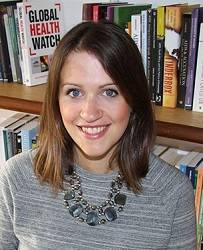Sophie Harman joins us to discuss global health, making films and seeing politics through the eyes of others.
Sophie Harman is Professor of International Politics at Queen Mary University of London with interests spanning global health, African Agency, film and visual methods, and gender politics. Sophie has pushed the boundaries of International Relations (IR) scholarship more than most, notably through her use of visual mediums to convey the lived experience of those at the receiving end of global health programmes. In 2019, she was nominated for the BAFTA for Outstanding Debut by a British Writer, Director, or Producer for her work on the feature film Pili which tells the story of women living with HIV/AIDS in Tanzania. Sophie has recently published the book Seeing Politics: Film, Visual Method and International Relation and was awarded the Joni Lovenduski Prize for outstanding professional achievement by a mid-career scholar by the Political Science Association (PSA) in 2018.

For more information, check out Sophie's profile at Queen Mary University of London or follow @DrSophieHarman on Twitter.
Projects and publications we discussed include:
- The film PILI: Pili lives in rural Tanzania, working the fields for less than $2 a day to feed her two children and struggling to manage her HIV-positive status in secret. For more information, watch the trailer or read the ‘Making of’ film blog.
- Seeing Politics: Film, Visual Method and International Relations (McGill-Queen’s University Press).
- ‘Threat not solution: gender, global health security and COVID-19’, International Affairs, 97 (3), pp. 601–623.
 Close
Close


